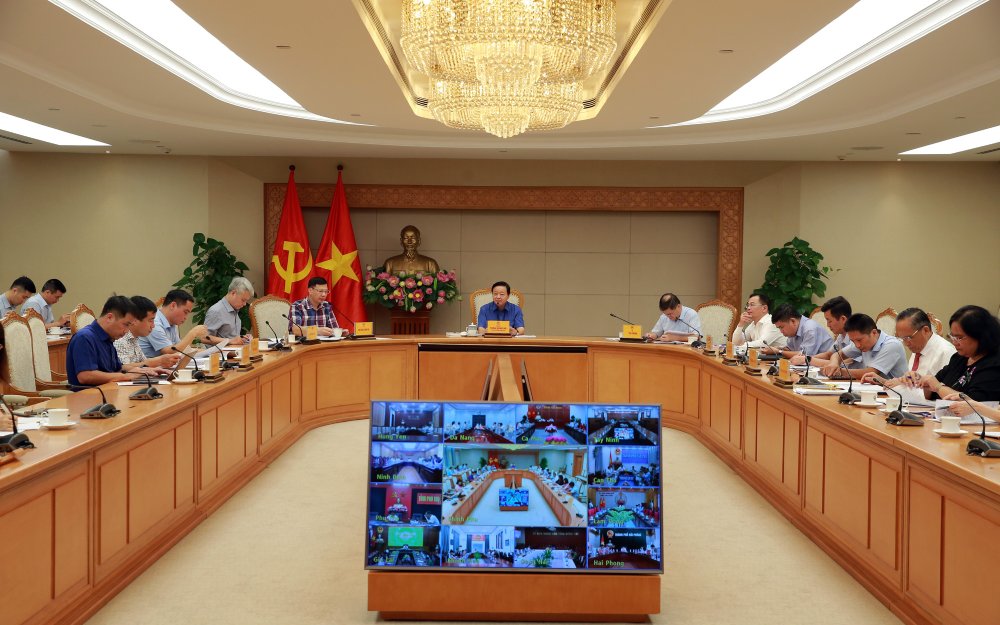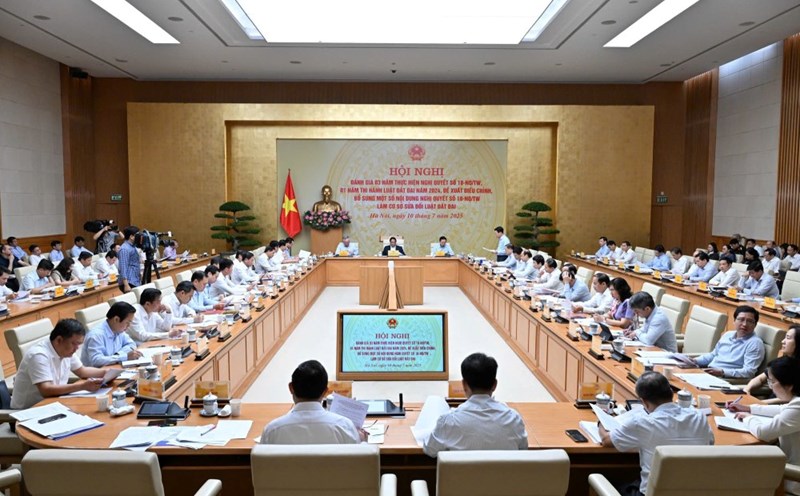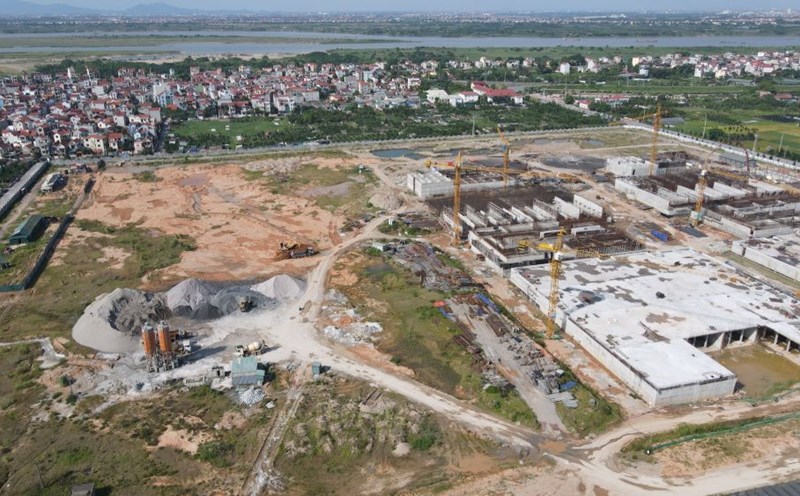On the afternoon of August 5, Deputy Prime Minister Tran Hong Ha chaired a meeting with ministries and branches, connecting online to the bridgehead in 17 provinces and cities on amending regulations on land use fees, land rent (Decree 103/2024/ND-CP), land development funds (Decree 104/2024/ND-CP).
The supplementary amendments to Decree 103/2024/ND-CP include 6 major groups: Scope of regulation; Calculation of land use fees; Calculation of land rent; Monitoring the situation of land use; Transitional regulations and handling of existing problems; Adjusting technical documents.
At the meeting, delegates discussed groups of issues with different opinions on amending and supplementing Decree 103/2024/ND-CP, as well as the proposed plan of the Ministry of Finance.
Accordingly, regulations on the amount of additional payment that land users must pay for the period not yet calculated for land use fees, opinions agreed on the plan proposed by the Ministry of Finance on the level of additional collection, and the time for calculating additional collection fees.
Deputy Prime Minister Tran Hong Ha noted that the principle of calculating the collection rate and time for collecting additional fees must have a clear basis, determining specific responsibilities between the State and enterprises, ensuring fairness, leniency for enterprises to develop, and fighting waste.
Regarding the calculation of land use fees when converting the purpose of use from agricultural land to residential land, feedback from the locality shows that the land price has increased dramatically, causing people to pay a much larger amount than before.

The Deputy Prime Minister stated that it is necessary to distinguish between those who use land for legal production and business and cases of speculation, leave land fallow and slow project implementation.
For people who access land for the first time to build houses, it is necessary to calculate the revenue level in accordance with their ability to pay, ensuring their rights and the ability to access reality, especially in rural and urban areas with difficult conditions.
Based on the general framework issued by the Government, the People's Council at the provincial level will determine the subjects and collection rates for people changing the purpose of land use for the first time; the difference between within and outside the limit when changing the purpose of land use.
In addition, localities can apply policies to exempt and reduce land use fees for policy beneficiaries, such as ethnic minorities, poor people, meritorious people, and residents in disadvantaged areas, similar to current policies.
The Ministry of Finance also proposes options for regulations: Calculating land use fees and land rents when handling transition in cases where competent state agencies re-calculate and arise land use fees and land rents that increase compared to the announced amount; Handling compensation, support and resettlement costs; calculating land use fees and land rents in cases where the project has repeatedly adjusted the detailed plan.
For Decree 104/2024/ND-CP regulating the Land Development Fund, the proposed amendments include: Management of operating capital sources; Cost of capital management; Revenue and expenditure; add transitional regulations for cases where capital has been provided; determine the existing capital source of the Land Development Fund.











